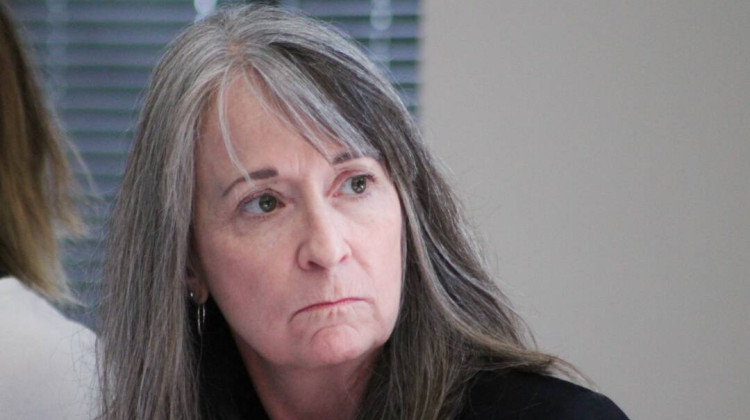
Angela Lyttle, a certified nurse midwife and owner of Sacred Roots Midwifery, said collaborative practice agreements were removed during the COVID-19 public health emergency and it showed concerns about safety are outdated.
Abigail Ruhman/IPB NewsNurse practitioners say a licensing requirement in Indiana is contributing to higher health care costs and lack of access for patients. The American Association of Nurse Practitioners includes Indiana among the states that limit nurse practitioners from doing the full scope of their job.
Indiana requires collaborative practice agreements, which are contracts that require nurse practitioners to work under the supervision of a physician.
Many nurse practitioners said they already have the proper training, and requiring additional supervision contributes to Indiana’s high health care costs.
Megan Engelman, the president of the Indiana Association of Nurse Anesthetists, told a recent Health Care Cost Oversight Task Force that hospitals pay for two providers, but only one of them actually provides the service.
“There are some hospitals that will employ an anesthesiologist just to sit there outside of my room, maybe on the other side of a hospital to supervise,” Engelman said. “And I already have a supervising physician in that room.”
Join the conversation and sign up for the Indiana Two-Way. Text "Indiana" to 73224. Your comments and questions in response to our weekly text help us find the answers you need on statewide issues, including our project Civically, Indiana.
Angela Lyttle, a certified nurse midwife and owner of Sacred Roots Midwifery, said collaborative practice agreements were removed during the COVID-19 public health emergency and it showed concerns about safety are outdated.
“All of the terrible things that we've always been told would happen if the collaborative agreement was removed did not happen,” Lyttle said. “It's a barrier, pure and simple.”
Lyttle said collaborative practice agreements act as a barrier for parents who want the midwife model of care and contribute to unfair pay practices for midwives.
“We have to get paid equitably,” Lyttle said. “We can't exist if we're not getting paid. That's the be all, end all.”
Lyttle said states without these agreements tend to have more midwife-attended births, which research shows improves patient outcomes by 56 different measures.
Abigail is our health reporter. Contact them at aruhman@wboi.org.
9(MDAyMzk1MzA4MDE2MjY3OTY1MjM5ZDJjYQ000))
 DONATE
DONATE








 Support WFYI. We can't do it without you.
Support WFYI. We can't do it without you.